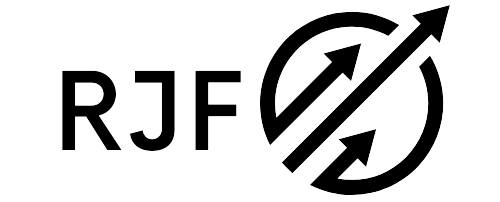Every time you make a financial decision, you're essentially training yourself to form a habit, whether it's good or bad.
But don't worry, with the right guidance and effort, you can establish some great financial habits.
By taking control of your finances, you'll be able to improve your financial well-being and increase your chances of realizing your dreams and goals.
To get started, here are some actionable tips that you can put into practice today.
MAKE A BUDGET FOR YOUR MONEY
Greetings, dear reader!
If we're talking about the art of managing money prudently, then budgeting is the quintessential starting point.
The construction of a well-crafted budget bestows upon you the power to fully comprehend and financial habits the ebb and flow of your financial resources; a sort of self-accounting mechanism that forestalls frivolous or careless spending.
A budget enables you to track fixed expenditures such as mortgage payments, rent, subscriptions, and car payments, along with variable expenses such as utilities, groceries, and recreational activities.
Think of your budget as a proactive tool that helps you prepare for the unexpected and anticipate any financial anomalies.
It's like a financial map that illuminates your fiscal path and leads you towards fiscal responsibility.
As you monitor your finances more scrupulously, you'll begin to recognize the areas in which you can reduce spending or increase savings.
By exercising fiscal prudence and discipline, you'll soon witness a noteworthy improvement in your financial standing.
So why wait?
Take the reins of your financial habits, and start budgeting today!
SET FINANCIAL GOALS FOR YOURSELF
When it comes to improving your financial situation and financial habits, setting relevant goals is key.
Have you taken the time to consider both your short- and long-term financial aspirations?
Maybe you're dreaming of a shiny new car or a place to call your own.
Or, perhaps you're focused on paying off that pesky student loan.
Regardless of your specific objectives, pursuing them can have a profound impact on your financial well-being and overall quality of life.
By setting these essential goals, you'll be able to reign in reckless spending habits and better manage your finances.
After all, it's hard to justify splurging on unnecessary expenses when you're working hard to reach your targets.
Whether you're looking to buy a new car, save for a down payment on a house, or pay down debt, setting relevant financial goals can help keep you on track and motivated.
So don't be afraid to dream big and chase after those financial aspirations – your future self will thank you for it.
This financial habit will help you stop daydreaming and face reality.
PAYING BILLS ON TIME
Ensuring timely payment of bills is a pivotal financial habit that can save you a lot of trouble in the long run.
It not only helps you avoid the exasperation of late fees but also facilitates the establishment of a robust credit history.
Now, if you are someone who often forgets the due dates of recurring payments or debts, fret not, for there are ways to stay on top of it all.
You can set up a reminder, automate payments or set it on autopilot, where payments are automatically deducted from your account without you having to lift a finger.
However, what if your income falls short of covering your expenses and debts?
This is a tricky scenario where the key lies in reducing your cost of living while supplementing your income by taking up a side hustle.
By cutting down unnecessary expenses and getting creative with new sources of income, you can better manage your bills, avoid defaults, and work towards building a sound financial future.
AVOIDING DEBT
Living debt-free is a paramount financial objective and financial habit that every person should endeavor to attain.
Nevertheless, millions of Americans are ensnared in an interminable cycle of debt, unable to break the shackles of financial burden.
The catch is to steer clear of a lifestyle that fosters debt accumulation, which impedes you from accomplishing authentic financial autonomy.
If you find yourself mired in debt, don't lose heart.
The crux is to develop a workable plan that facilitates steady monthly payments without straining your paycheck excessively.
It's imperative to stay current with your routine monthly bills while concurrently making strides towards settling your debts.
To expedite the process of becoming debt-free, contemplate implementing these ten strategies.
Each strategy is purposefully formulated to aid you in expediting your debt reduction and achieve financial independence more expeditiously.
Bear in mind, every little bit counts, and adopting proactive measures to eliminate your debts will pay dividends in the long run.
GET AND MAINTENANCE NEEDED INSURANCES
When it comes to financial protection, insurance is a shield against potential financial ruin in the event of an emergency.
So, it's essential to ensure you have the necessary insurance coverage to safeguard yourself, your family, and your assets.
You need to stay up-to-date with the following types of insurance:
- Health insurance
Medical bills can be a real nightmare. With health insurance, you can get access to top-notch medical care without breaking the bank.
- Dental insurance
The cost of dental care can be a shocker. But with dental insurance, you can keep your teeth and gums healthy and your wallet happy.
- Car insurance
A car accident can happen to anyone. And the costs of repairs or medical expenses can be overwhelming. Having car insurance protects you financially from such a situation.
- Homeowners’ insurance or renters’ insurance
Your home is your haven. Whether you own or rent, it's wise to have insurance coverage to protect your living space from unexpected disasters.
- Pet insurance
Our furry friends are part of the family, and they deserve to be taken care of just like we do. Pet insurance helps cover the cost of veterinary bills, so you can provide the best possible care for your pets without worry.
- Guaranteed auto protection insurance
If your car is totaled in an accident, the insurance company will only pay the market value of your car. Guaranteed auto protection insurance covers the difference between the market value and the amount you owe on the car loan.
Ensure that you have the right insurance policies to suit your specific needs. Don't let coverage lapse, or you may be left in a vulnerable financial position.
THINK ABOUT RETIREMENT
Adopting healthy financial habits is paramount to a successful retirement.
One such habit is saving a portion of your paycheck towards your golden years.
After all, failing to retire comfortably means you didn't work hard enough to secure your financial future.
Fortunately, some employers offer a 401(k) matching program, which provides a fantastic opportunity to grow your retirement savings.
Without hesitation, take advantage of any such program offered at your organization.
Another great option to plan for retirement is by opening a Roth IRA account and investing your savings.
This investment vehicle offers tax-free growth, which means your money grows without any tax implications.
By taking a proactive approach to saving for retirement, you can ensure that your financial future is secure, and your golden years are filled with joy and peace of mind.
PAY YOURSELF FIRST
In the quest to spend money wisely, one of the most common financial habits to adopt is paying yourself first.
This simple yet effective technique involves setting aside a portion of your paycheck for savings and retirement accounts before allocating the rest to monthly bills.
Those who practice paying themselves first put their savings goals front and center, recognizing the long-term benefits of this habit.
However, it's important to strike a balance and avoid over-saving to ensure there's still room to cover other expenses.
Remember, every little bit counts when it comes to building a solid financial future, so even small contributions towards your savings can make a big difference over time.
BUDGET FOR EMERGENCY FUND
Financial uncertainty is a common occurrence, and that's why establishing an emergency fund is one of the intelligent financial habits to cultivate.
You can't predict the future, but you can prepare for the unexpected by saving money in a separate account.
Life has a way of throwing curveballs at you, like unexpected car repairs, medical bills, or sudden job loss.
If you have an emergency fund in place, you can handle these unforeseen events with greater ease.
You won't have to worry about using credit cards or taking out loans to cover unexpected expenses.
It's important to start building an emergency fund as soon as possible, even if you can only contribute a small amount each month.
Over time, your savings will grow, and you'll have peace of mind knowing that you have a financial safety net in place.
Remember, life is full of surprises, but with an emergency fund, you'll be better prepared to handle them.
LIVING FRUGALLY
Living below your means can be one of the most pragmatic decisions to make when your financial situation isn't in your favor.
This approach entails a significant reduction in your expenses.
For instance, if your monthly expenses total $3,000, cutting it down by 15% or more is a wise choice.
It's time to scrutinize your groceries, subscriptions, and other variable bills you have control over.
But, if you're more determined, why not consider moving into a cheaper apartment to cut housing costs?
And if your mortgage payments are bleeding you dry, it's high time you reconsidered less expensive options.
Remember, the less money you spend, the more money you save towards your financial goals.
Need more ideas on frugality? Check out these 10 unusual frugal tips to save a ton of money!
FINANCIAL AUTOMATIONS
Incorporating automation into your financial habits is an imperative habit to adopt, without delay.
The reality is that with countless concerns competing for your attention – work commitments, familial obligations, and other pressing matters – it's all too easy to neglect certain monetary obligations.
Sadly, forgetting to make timely payments is not an uncommon occurrence.
You might possess sufficient funds, but unfortunately, your memory has failed you.
Such an error, however, is not one that should occur when it comes to fulfilling your responsibilities regarding student loans or credit card debt.
Neglecting these commitments can result in the addition of late fees to the outstanding balance, subsequently increasing the financial burden you bear.
To avoid the aforementioned predicament, the optimal solution is to automate your finances.
By setting up automated payments, you'll ensure that all necessary transactions are executed promptly and without fail.
This, in turn, grants you full control over your financial obligations while simultaneously allowing you to focus on other pressing concerns.
SAVE FOR BIG SHOPPING
In the quest for responsible spending, cultivating the habit of careful planning before making large purchases is a must.
While you may indulge in an $7 Starbucks coffee without jeopardizing your finances, a sudden expenditure of $600 on an item you barely need could potentially wreak havoc on your financial wellbeing.
Consequently, meticulous planning is critical when it comes to significant monetary transactions.
Avoiding hasty decisions in favor of thoughtful consideration can prevent the creation of a regrettable financial predicament.
It's imperative to dedicate ample time to the planning process, ensuring that all factors are thoroughly scrutinized before proceeding with a significant purchase.
In doing so, you'll be able to approach large expenditures with the prudence and diligence necessary to protect your financial stability.
PAYMENT OF CREDIT DEBTS
What's the current status of your credit card balance?
Are you the sort of individual who takes the initiative to pay off your balance every month, or are you one of those individuals who allow their balance to grow into a colossal debt?
The pinnacle of financial responsibility is the consistent payment of credit card debt each month.
It's imperative to incorporate this into your budgetary plan and automate the payment process for utmost convenience.
In the event that you exhibit carelessness in handling your credit card responsibilities, it's not uncommon for your debt to escalate to staggering heights, reaching tens of thousands of dollars.
In addition, it's crucial to recognize that your credit card balance might be surging skyward if you exhibit a proclivity for frivolous spending.
Reducing your spending habits and reserving credit card usage for emergency situations exclusively, can facilitate the clearing of your balance each month with ease.
By taking a thoughtful and prudent approach to credit card usage, you'll be able to achieve and maintain financial stability with greater ease.
FINANCIAL INVESTMENTS
Incorporating the habit of wise investment is a cardinal principle of financial habits.
However, a common misconception among individuals is the notion that only the wealthy can afford to invest.
Contrary to this belief, however, wise investments seldom begin with significant sums of money, but rather with small yet bold steps.
With as little as $1,000, one can engage in successful stock market investments and observe their finances grow over time.
AND $1,000 is just a random number. A lot of people succeed with even less capital.
Naturally, investments carry inherent risks.
However, when one considers the alternative, that is, allow their money to remain idle, the implications of doing so become clear.
The phenomenon of inflation presents a considerable risk to individuals who fail to invest their money.
Over time, the price of goods and services consistently increases, leading to a decline in the value of money.
Thus, it's imperative to find ways to multiply one's finances through strategic investments to combat the damaging effects of inflation.
Invest In Yourself
When considering how to optimize your financial prowess and financial habits, it's important to bear in mind that the most lucrative investment you can make is in yourself and your future.
This can encompass everything from the seemingly mundane – like maintaining a well-balanced diet and ensuring you get plenty of quality shut-eye – to the grander, more monumental feats such as earning a degree or pivoting into an entirely new career field.
However, the crucial element is to foster a mentality geared towards perpetual self-improvement, always striving towards loftier heights and never resting on one's laurels.
This will allow you to reap substantial rewards that will pay off down the road.
Final about good financial habits!
Let's dive into the intricacies of the financial world, shall we?
If you're looking to achieve financial success and secure your future, you need to start with the basics.
And that means developing some seriously good financial habits.
Debt reduction and avoidance, retirement planning, and consistent saving are just a few of the habits you need to cultivate if you want to make your dreams a reality.
But let's be real, these habits won't just magically appear overnight.
You have to work at them, day in and day out, until they become an ingrained part of your financial DNA.
It's not going to be easy, but trust us, it's worth it.
As you slowly but surely start to incorporate these good money habits into your life, you'll begin to notice a real difference in your finances.
Your debt will shrink, your savings will grow, and your retirement will become a much more attainable goal.
So what are you waiting for?
Start building those good financial habits today, and watch as your financial future starts to take shape before your very eyes.









